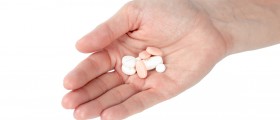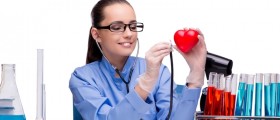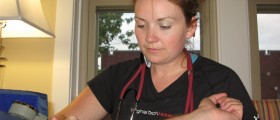
Acute coronary syndrome refers to any possible condition which causes sudden cessation or reduction of blood flow to the heart. Also, this syndrome stands for the pain in the chest that a person experiences during a heart attack while resting as well as while engaging into physical activity. Any kind of chest pain, or acute coronary syndrome for that matter, is a very serious occurrence which demands immediate medical assistance. Fortunately, when treated timely, acute coronary syndrome can be dealt with efficiently. However, the treatment itself varies, depending on the underlying condition, the signs and the symptoms.
Signs of Acute Coronary Syndrome
Many times, acute coronary syndrome resembles a heart attack and, in a majority of cases, it will eventually evolve into a heart attack.
Therefore, chest pain which manifests through burning sensation and severe tightness in the chest area, lasting for several minutes is a typical symptom of acute coronary syndrome. Also, the pain may be felt in some other portions of the body, especially in the upper left arm or jaw. Nausea, vomiting, shortness of breath and sudden bouts of sweating are all common signs of acute coronary syndrome.
Yet, the signs may vary, depending on the age, sex and possible presence of any underlying medical conditions.
A heart attack, on the other hand, manifests through abdominal pain, heartburn-like symptoms, clammy skin, dizziness and feeling lightheaded, as well as severe fatigue without no apparent reason and restlessness.
Treatment for Acute Coronary Syndrome
Once you start experiencing the above mentioned symptoms and signs, you are advised to seek medical assistance immediately. Do not drive to the hospital yourself. Rather, make sure someone is there to assist you since you could be in the middle of a heart attack. Explain the symptoms to your doctor in detail and he/she will suggest the best possible treatment for your occurrence of the acute coronary syndrome.
As for the medications used for treating this syndrome, Aspirin can be very useful, decreasing blood clotting. Alternatively, you might get thrombolytics prescribed, these being medications which prevent clotting as well. These drugs can prevent an ongoing heart attack. Nitroglycerin can improve your blood circulation and prevent a heart attack this way. Furthermore, angiotensin-converting enzyme inhibitors and angiotensin receptor blockers stimulate better blood flow from the heart. Beta blockers relax the heart muscle, lowering the blood pressure and slowing down the heart rate, preventing any damage from affecting the heart.
If nitroglycerin and beta blockers fail to help, calcium channel blockers are administered. Also, cholesterol-lowering drugs decrease plaque deposits by lowering cholesterol.
Finally, if all else fails, angioplasty and stenting or coronary bypass surgery are all invasive ways of dealing with acute coronary syndrome.

















Your thoughts on this
Loading...